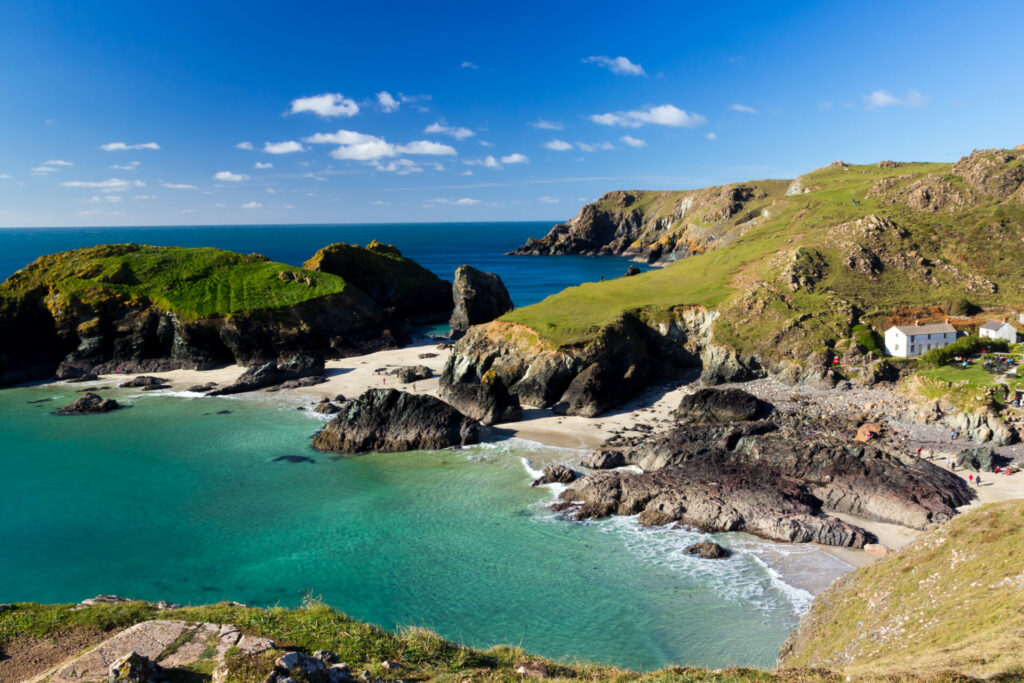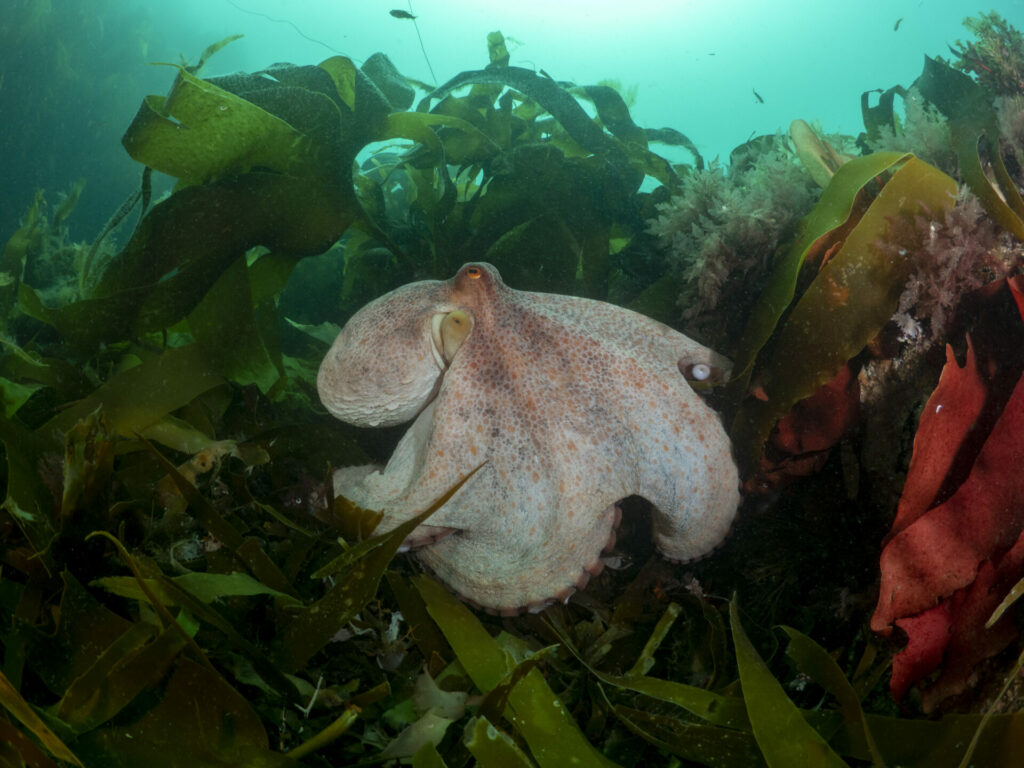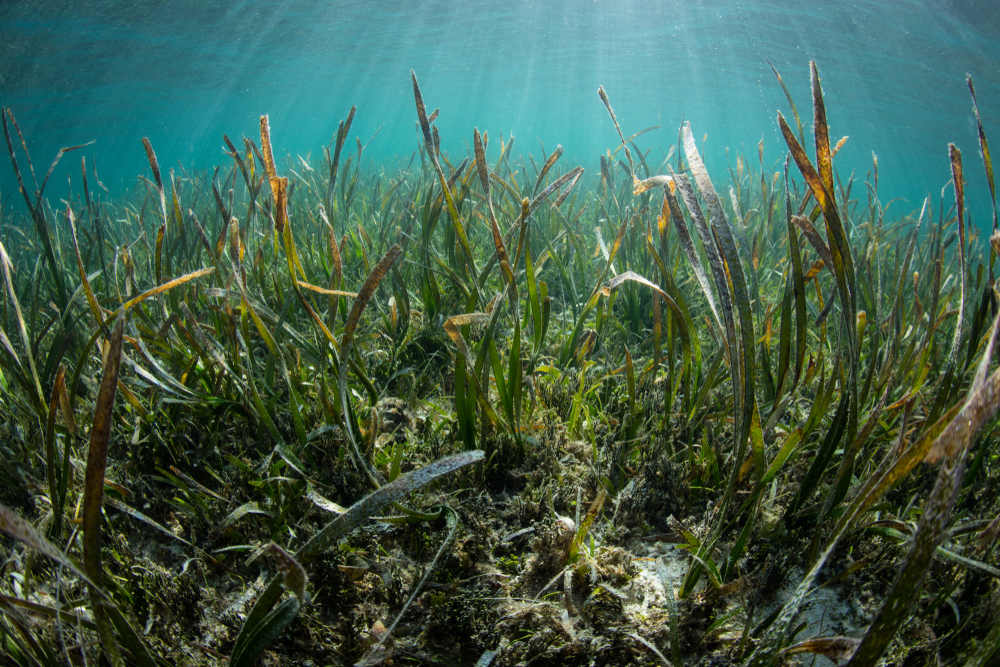A huge surge in the number of octopus being spotted off the coast of Cornwall in the UK may be down to rising sea temperatures, it is believed.
Divers have reported seeing the Common Octopus in abundance while one fisherman caught 150 in just one day while fishing for lobster compared with his usual total of one or two a year.
This large species of the eight legged cephalopods – whose tentacles can span up to a metre – is rarely seen in UK waters and has been recorded by the wildlife charity just twice a year on average.
Cornwall Wildlife Trust (CWT) say the main area of activity is around the Lizard Peninsula.
Matt Slater, marine conservation officer at CWT said: ‘I got really excited when I started receiving messages from our Seasearch divers – not only because sightings of these striking animals are few and far between, but because they’d seen several of them on one dive.
‘They are such amazing, alien creatures – one of the most intelligent animals in our oceans – and to witness a population explosion in our local waters would be incredible.’

The cause is currently under investigation, but rising sea temperature levels is thought to be a contributing factor.
Octopuses have been adapting faster than other species to the changing marine ecosystem. A study by a collaboration of U.S. researchers from Walla Walla University, in Washington State, and La Sierra University, California, also found octopuses may be able to withstand changes in acidity levels better than other species.
The CWT’s conservation officers believe these surging numbers could also be evidence of an octopus population boom – an event last recorded in the area more than 70 years ago in the summer of 1948.
Octopuses are semelparous animals, which means they reproduce only one time and then they die. After a female octopus lays her eggs, she stops feeding and uses her remaining energy to care for and watch over her eggs. By the time the eggs hatch, she dies.

The sightings come on the heels of a report that found strong scientific evidence that Octopuses have the capacity to experience pain, distress or harm. The study by the London School of Economics means as sentient animals, they will receive greater welfare protection in UK law.
Matt added: ‘We hope this is a sign that octopus populations are healthy in our Cornish waters, but sadly not all of our marine life is thriving. By taking action for wildlife and recording your marine sightings with us, we can build up a picture over time and confirm if occurrences like this are a one off or if octopus populations are steadily on the rise.’
Should you spot them while diving or snorkelling, CWT asks that you admire them from a distance and report the sighting to the Cornwall Wildlife Trust.













